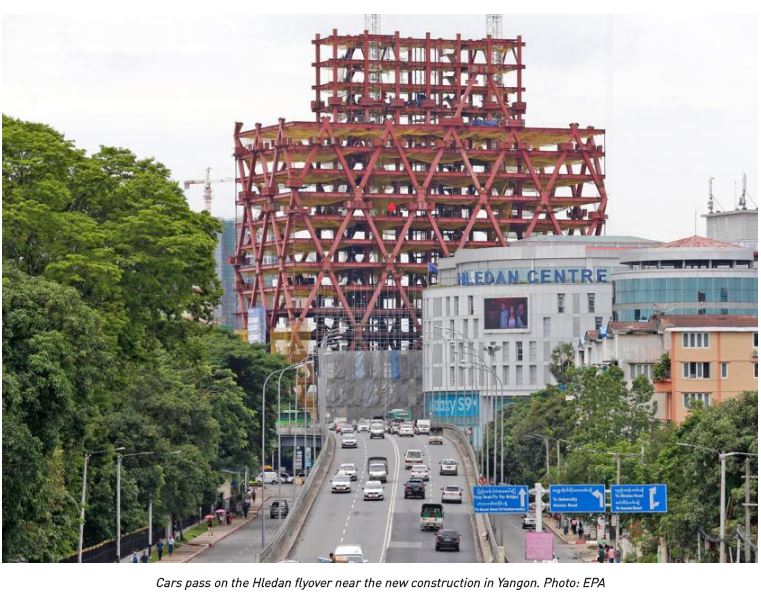Myanmar: Uncertainty for economy remains despite pick-up in growth: World Bank
Despite the strong performance and favourable economic outlook for Myanmar, risks have emerged that could affect business confidence and derail future developments if not addressed, according to the World Bank’s Myanmar Economic Monitor released yesterday.
The report said that the country’s economy performed better in 2017-18 amid growing global and domestic uncertainty, partially offsetting slower growth in 2016-17. It is estimated that Myanmar had a broad-based increase in growth of national income as well as lower inflation and improved fiscal and external balances. The domestic currency, kyat, appreciated slightly during 2017-18 on strong exports and foreign direct investment (FDI) flows.
Growth of Gross Domestic Product (GDP) is estimated to have increased to 6.4 percent in 2017-18 from 5.9 percent in 2016-17. This growth was driven by a recovery in agriculture and especially crop production, improved manufacturing performance, and strong services growth, in spite of a slight slowdown which is likely caused by tourism and banking sector uncertainties, according to the report.
The report indicates a favourable outlook with growth expected to increase to 6.8 percent in 2018-19 and inflation — which moderated to 5.5 percent in 2017-18 from 7 percent in 2016-17 — is expected to ease further to 4.9 percent in 2018-19.
“The pick-up in growth and improvement in the macroeconomic situation are encouraging,” Ellen Goldstein from the World Bank said.
“The government is also finalising its Myanmar Sustainable Development Plan, which we hope will serve as a platform to accelerate economic reforms, modernise the financial sector and make progress in resolving conflicts that jeopardise inclusive and sustained growth,” she added.
“For the economy to sustain its positive momentum amid intensifying risks, it needs well-targeted public investments and private sector activity encouraged by a stable macroeconomic environment and policy certainty,” Hans Anand Beck, World Bank Lead Economist for Myanmar, explained.
“Providing and pricing electricity well, implementing the [new] Companies Act, servicing tax payers, and securing the environment for financial transactions can help in this regard.”
In addition to the regular economic review and outlook, the report contains deeper topical analysis on reforms to support inclusive growth. It suggests measures to boost investment including FDI at a time when investors perceive a slowing pace of government reforms and risks from the Rakhine crisis amplified by concerns about international trade policy and volatile commodity prices.
A joint paper with the Central Statistical Organisation describes Myanmar’s recent evolution of the private sector and shows how ownership, firm size and stable electricity provision affect firm productivity. In addition, the report suggests how a sound, efficient, and inclusive financial system can play a critical role in creating and sustaining a market-based economy for inclusive growth in Myanmar.
The Myanmar Economic Monitor (MEM) periodically analyses economic developments, economic prospects, and policy priorities in Myanmar. The MEM draws on available data reported by the national government and additional information collected as part of the World Bank Group’s regular economic monitoring and policy dialogue.
Source: https://www.mmtimes.com/news/uncertainty-economy-remains-despite-pick-growth-world-bank.html


 English
English




